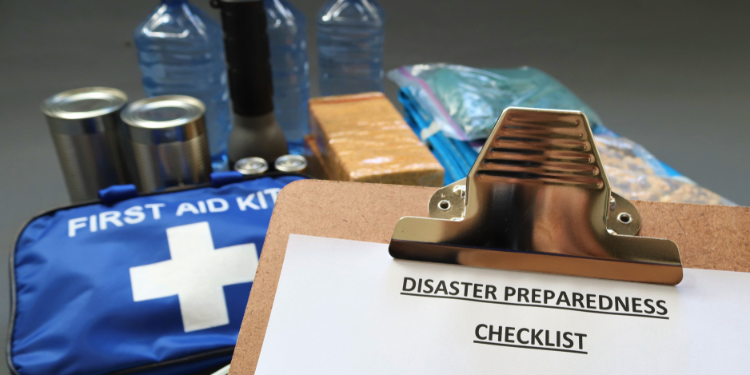
Jerry Nelson, an American expat in Argentina gives us a few tips to make it through a global pandemic as an expat...
Being trapped with a toddler, a newborn, and a Labrador wasn't what Nikki had in mind when she first dreamed of the exotic expat life.
Nikki, an Australian, lived in Singapore and watched nervously as coronavirus numbers climbed. After working in the city-state for seven years, and the UAE before that, Nikki knew there wasn't much time to leave. “I stuffed as many of our things in a suitcase, and that was it,” she said. “Within 36-hours we were on a plane,” she told me on Zoom recently.
Firm figures are hard to come by, but signs of shifting expats are popping-up. Of the 42,800 New Zealand citizens, for example, who returned from living abroad, almost half arrived in the first three-months of 2020.
The stream of expats returning home due to COVID-19 is noticeable to real estate agents. Shayne Harris says that even if expats don't want to return home immediately, they are still showing more interest in acquiring a future residence at “home”.
For every expat that returns to their home country, there are more who remain in their host country. Here are some tips for those who stay in their new ‘home'.
5 gambits to survive the pandemic as an expat
Being an expat brings enough stressors. They often leave behind family members are often as are lifetime friends, familiarity with the customs and language and often the routine pleasure of sipping coffee at a sidewalk cafe and eavesdropping to the many conversations. Add a pandemic to the mix and the anxiety can be overwhelming. Five, easy to incorporate, tips can make the difference between succumbing to the pressures which come from being around the virus — or thriving.
- Know the Rules,
- Transportation,
- Basic Services,
- Heading Outside, and
- Daily Survival
Know the Rules of Healthcare
Depending on the country, healthcare can depend on your status as a permanent or temporary resident. Having private insurance will allow you to avoid hospital bed shortages or treatment delays.
To save money, many expats opt for publicly funded insurance and can experience a delay in treatment — especially in developing nations. If you have no insurance, you may face high admittance fees for hospitalization.
If you are a “snowbird” and have healthcare insurance in your home country, make sure you know the rules, requirements and guidelines behind that policy. There may be time limits for living outside your home country and if those limits are exceeded, you might run the risk of losing healthcare coverage altogether.
Transportation
Transportation can be difficult — even without a pandemic. But it maybe totally unavailable during a pandemic.
Flights could be canceled and airports may close to anyone other than residents of that country. If you aim to stay overseas, get a return flight as soon as possible.
Public transportation, such as subways and buses, may operate at a very limited capacity. As many countries are currently requiring documentation just to leave the house, travel on public transportation can be difficult at best.
Even driving in a private car, there often are checkpoints where essential travel relies on having proper and current documentation.
In Buenos Aires, for example, a routine drive of a few kilometers between Capital Federale and the resort town, Tigre, can be interrupted. What is normally a bottleneck is now an impossibility.
Basic
Basic services, such as bottle water delivery may be no longer available. While this may seem to be a first-world problem, it's not if the local tap water isn't safe to drink.
That laundry service you relied on to stay neat and pressed could be forced to close. Many folks in Sofia, Bulgaria found this out. Instead of only not being forced to stay home, they have to their smelly clothes — unless they wash their laundry in the kitchen sink.
Another seemingly first-world problem is maid service. It becomes vital if you are elderly or health-impaired. In many parts of Mexico for example, the amount of dirt and dust accumulating each day can be overwhelming.
Irrespective of your housekeeper being able to travel to your property to clean, she still needs to eat, so make sure to continue to pay her.
Heading Outside
Depending on where you live, leaving home, without proper documentation, may not be possible during a pandemic.
France and Italy are two of the current ones. Mexico at first didn't require documentation, but that has changed and anyone who needs to leave their property, must have documentation.
Many South American nations require travel documents for people doing over 161 km (100 miles) from home.
Daily Survival
Other than toilet paper, we need food for survival during a pandemic in a foreign country. Grocery stores are frequently out of the basics, but restock as deliveries come in.
Chain stores, such as Wal-Mart have begun delivery service and many seasonal markets in Argentina are closed — but the city markets used by locals are still open.
Stock up, not hoard, non-perishables like beans and rice. Others need to eat, and they may lack the financial capacity to buy more than a day's or week's worth of groceries.
Anyone with enough cash stand a better chance of survival. Some shops take credit cards, but not all. Make sure to have plenty of local currency.
The Takeaway
If you have enough cash and enough food, consider donating to a food bank. When a crisis hits, remember we are all in this together and pull together to strengthen our community.



















